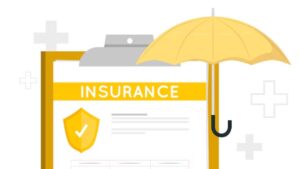Introduction to Loans
Loans are an integral part of financial planning for individuals and businesses alike. Whether you’re looking to buy a house, start a business, or handle unexpected expenses, loans can provide the necessary funds to achieve your goals. But what exactly are loans, and how do they work? Let’s dive into the world of loans and explore everything you need to know.
Types of Loans
Loans come in various forms, each designed to meet different needs and circumstances. Understanding the different types of loans can help you choose the right one for your situation.
Secured Loans
Secured loans are backed by collateral, such as a house or car. This means if you default on the loan, the lender can seize the collateral to recover their money. Because of this security, secured loans often come with lower interest rates and higher borrowing limits.
Unsecured Loans
In contrast, unsecured loans don’t require collateral. These loans are based solely on your creditworthiness and income. While they offer more flexibility, they often come with higher interest rates due to the increased risk for lenders.
Personal Loans
Personal loans are versatile and can be used for various purposes, from consolidating debt to funding a vacation. They are typically unsecured and come with fixed interest rates and repayment terms.
Features of Personal Loans
Personal loans often have fixed monthly payments, making it easier to budget your finances. They also usually have a fixed interest rate, so your payments won’t change.
Benefits of Personal Loans
One of the main benefits of personal loans is their flexibility. You can use the funds for almost anything, and they often have lower interest rates than credit cards. Additionally, personal loans can help improve your credit score if you make timely payments.
Business Loans
Business loans are specifically designed to help businesses grow, manage cash flow, or cover operational costs. They can be secured or unsecured, depending on the amount and the lender’s requirements.
Types of Business Loans
Business loans come in various forms, including term loans, lines of credit, and equipment financing. Each type serves different business needs and has its own set of terms and conditions.
Requirements for Business Loans
To qualify for a business loan, you’ll typically need to provide a business plan, financial statements, and personal and business credit reports. Lenders want to ensure that your business is capable of repaying the loan.
Loan Application Process
Applying for a loan can seem daunting, but breaking it down into manageable steps can make the process smoother.
Steps to Apply for a Loan
- Determine your needs: Understand how much you need to borrow and why.
- Check your credit score: This will give you an idea of your eligibility.
- Research lenders: Compare different lenders to find the best terms.
- Gather documentation: Prepare the necessary paperwork, such as identification, proof of income, and bank statements.
- Submit your application: Fill out the application form and submit it to the lender.
Common Requirements
Lenders typically require proof of income, employment verification, and a good credit score. Some may also ask for collateral, especially for larger loans.
Interest Rates and Terms
Interest rates and loan terms can significantly impact the overall cost of your loan. Understanding these factors can help you make informed decisions.
Fixed vs. Variable Rates
Fixed interest rates remain constant throughout the loan term, providing stability and predictability. Variable rates, on the other hand, can fluctuate based on market conditions, potentially leading to lower initial rates but higher costs over time.
Loan Terms and Repayment Options
Loan terms refer to the duration over which you’ll repay the loan. Shorter terms often come with higher monthly payments but lower overall interest costs. Longer terms reduce monthly payments but increase the total interest paid.
Credit Score and Loans
Your credit score plays a crucial role in the loan approval process and the interest rates you’re offered.
Impact of Credit Score
A higher credit score can qualify you for lower interest rates and better loan terms. Conversely, a lower credit score may result in higher rates or even loan denial.
Improving Your Credit Score
To improve your credit score, pay your bills on time, reduce your debt, and avoid applying for multiple credit accounts in a short period. Regularly checking your credit report for errors can also help maintain a good score.
Common Mistakes to Avoid
When it comes to loans, there are several common mistakes that borrowers should avoid.
Overborrowing
Taking out more money than you need can lead to unnecessary debt and financial strain. Always borrow only what you can afford to repay.
Ignoring Terms and Conditions
It’s crucial to read and understand the terms and conditions of your loan. Ignoring these details can lead to unexpected fees and charges.
Conclusion
Loans are powerful financial tools that can help you achieve your goals, but they come with responsibilities. By understanding the different types of loans, the application process, and how to manage repayments, you can make informed decisions that benefit your financial future. Always remember to borrow responsibly and choose loans that align with your financial situation and goals.
[redirect url=’https://lonavalapoint.in/fully-funded-online-mba-scholarships/’ sec=’45’]
FAQs
- What is a secured loan? A secured loan is a type of loan that requires collateral, such as a house or car, to back the loan.
- How does my credit score affect my loan application? Your credit score impacts your eligibility for a loan and the interest rates you’ll be offered. A higher score can lead to better terms.
- Can I use a personal loan for any purpose? Yes, personal loans are versatile and can be used for a variety of purposes, including debt consolidation, home improvement, and more.
- What are the benefits of fixed interest rates? Fixed interest rates provide stability and predictability, as your monthly payments remain constant throughout the loan term.
- How can I improve my chances of getting approved for a business loan? To improve your chances, ensure you have a solid business plan, good credit, and all necessary documentation.



















